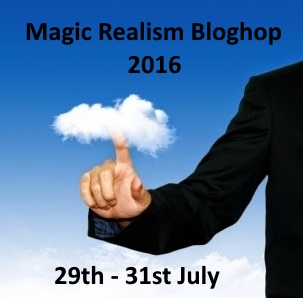
The story materialized in my head a few days before Halloween, 2009. It’s World War 2. A gang of creatures, half man and half beast, attack a party of SS men executing a group of Jews. I imagined a pretty young girl stumbling over roots as German soldiers herded her toward a clearing in the dense Polish woods. I visualized a wolf standing upright, a lean, doglike head, tip-tilted gray eyes, muscular legs dressed in the uniform of the Polish Army.
The story thumped home with a sense of rightness. Yes, this is good. This works. All the usual signs were there: the hair raising on the back of my neck, the butterflies going in my stomach. But on it’s heels, this: was I trivializing the Holocaust?
War seemed like too serious a subject to ornament with fantasy. But whenever I tried to recreate my family’s World War 2 experiences in a straightforward way, they fell flat, just an array of twisty black letters on a white page. I put them aside, unable to make the characters and events rise from the paper, to breathe believable air. But the day I set my partizan/wolfman at the edge of the Nazis’ pit, digging through the bodies to find his oldest friend, was the day the stories came roaring to life. The day I fused magical realism with historical fiction was the day I became a writer.
My parents were Holocaust survivors. Dad’s stories were haunted with tragedy. Everyone died. But Mom’s experiences were thrilling adventures, with eleventh hour rescues, fearless Partizans, handsome German officials defying their own government, heroic Poles risking their lives to hide their Jewish friends. Mom’s stories spoke of hope.
Every one of my parents’ stories contained the words, “It was a miracle.” The German officer looked one way, and my uncle jumped the other way. The forest fire smothered by a giant of an uncle who, single-handedly, lifted up an enormous tree trunk and flung it down on the flames. A Nazi soldier who stood right on top of the undisguised entry door of my father’s bunker, and still didn’t see it. The welcoming arms of the Polish forest, deep and dark and swampy and ancient as the earth itself, shielding all who sought refuge.
The men and women in their stories were larger than life, like characters in a fairy tale. An SS man who hid Jews in his castle, with the power to enchant his superiors; a Polish woman who cooked such lovely breakfasts that they lured away the soldiers searching for Jews in her barn; Torah scholars, transformed by the deep Polish woods into mighty resistance fighters.
Believe me. It was no great leap to add a talking dog.
The stories wanted to be told, and they wanted to be told in this way. There are so many books written about World War 2 that we experience a kind of Holocaust overload. Y-E-S, it was tragic. Y-E-S, millions were murdered. We’ve all read Anne Frank. We’ve all read Maus. We know this story. We know!
As an author, that’s where my challenge lay. I needed to make people feel it, for the first time, all over again. And for me, magical realism was the answer.
This post is part of the Magic Realism Blog Hop. About twenty blogs are taking part in the hop. Over three days (29th – 31st July 2016) these blogs will be posting about magic realism. Please take the time to click on the button below to visit them and remember that links to the new posts will be added over the three days, so do come back to read more.


Thank you so much for this contribution to the Magic Realism blog hop. I really enjoyed your book, as you know, and this post is a fascinating insight into how you approached it.
Thanks, Zoe! Last year, interviewers kept asking me why I did it, and I didn’t have an intelligent answer for them. It came to me all at once, like an epiphany. It was so interesting reading what everyone else had to say about Magical Realism. Thanks for inviting me to be part of the hop.
I know what you mean when you talk about adding the talking dog to your work. I tried writing realistic fiction in grad school, only to find that my work really came alive when I added in fantastic elements.
Interesting post!
Thanks, Lynne! I also heard this from Helene Wecker, who wrote “The Golem and the Jinni.”